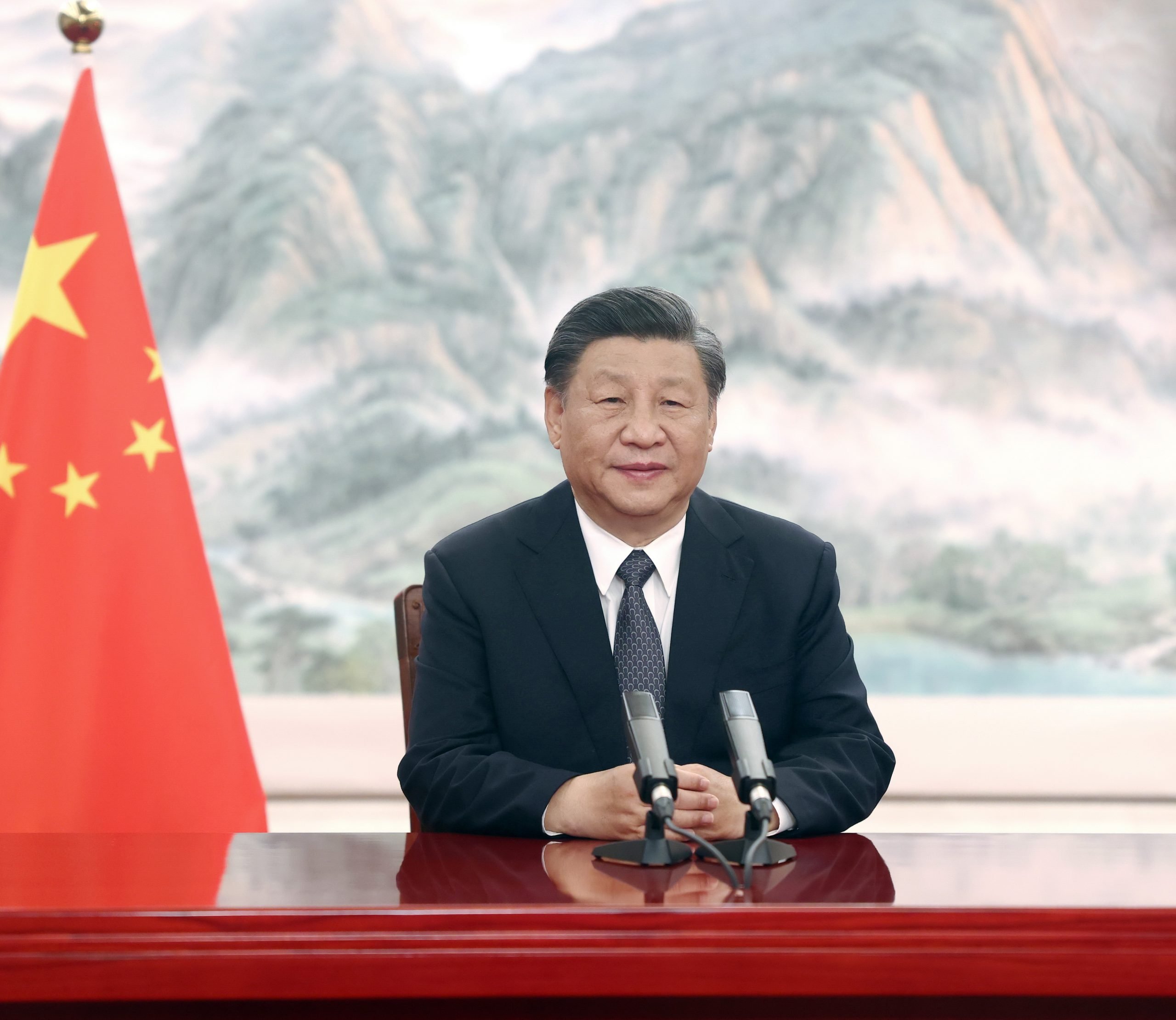
In a saga that sounds like the plot of a potboiler, the U.S. government has found evidence that China has been spying on a U.S.-based sculptor—and destroying his work.
Last year, artist Chen Weiming installed a three-story sculpture in California’s Mojave Desert that depicted Chinese President Xi Jinping’s head in the form of a giant coronavirus molecule. It was accompanied by a sign that read “CCP Virus,” insinuating that the Chinese Communist Party was responsible for the COVID-19 pandemic.
Shortly after it was unveiled, Chen’s artwork was mysteriously burned to the ground. Security cameras around the site were found disconnected, leaving authorities with no suspects.
Chen Weiming with his sculpture CCP Virus 2 (2022). Courtesy of the artist.
But Chen had an idea of who the culprit was. The artist, who was born in China, accused his home country of the crime, saying in a statement that Xi’s regime “wants to shut down our free speech.”
“I think this (arson) must come from a Chinese Communist party officer in Los Angeles,” Chen said. “Something like this is not a personal action but a Chinese government action against us and the American system of free speech.”
“They want the truth about the origins of the COVID-19 virus to be hidden from the world,” the artist said.
Far-fetched though Chen’s claims may have seemed at the time, it turns out he was probably right.
In March, the U.S. Department of Justice announced that it had charged five people with “stalking, harassing, and spying on U.S. residents on behalf of the [People’s Republic of China’s] secret police,” including three who were connected to Chen.
After his initial statue of President Xi was razed, Chen set about re-making the sculpture—this time using steel so as to resist future arson attempts. It was also around then that a new patron began showing interest in his work.
“There was an American businessman named Matthew,” Chen recalled in a recent segment for NPR. “He came to my studio to commission the original piece and said he represented a Jewish art lover who wanted to open a museum for democracy in New York.”
The supposed art lover had a few curious requests. “Matthew said his boss wanted to see the process of sculpture,” Chen said. “I thought it was totally reasonable, so I installed a camera for him. A few days later, Matthew said because the sculpture was three-dimensional, the camera wasn’t getting all the angles. So he came to install more cameras.”
Months later, the Justice Department revealed that Matthew wasn’t a businessman at all. The man was actually a former Florida prison guard named Matthew Ziburis, and he, along with two other operatives—Fan “Frank” Liu and Qiang “Jason” Sun—were paid more than $3 million by Chinese security services to spy on dissidents in the U.S. Evidence shows that the three men were likely behind the effort to destroy Chen’s sculpture as well.
Liu and Ziburis were arrested in March; as of July, Sun remained at large. Two other operatives have also been charged for similar crimes: Qiming Lin, who allegedly hired a private investigator to disrupt the campaign of a New Yorker running for U.S. Congress; and Shujun Wang, a former scholar who, according to the Justice Department, used his “status within Chinese diaspora community in New York City to collect information about prominent activists, dissidents, and human rights leaders to report that information to the PRC government.”
All five individuals were indicted in July.